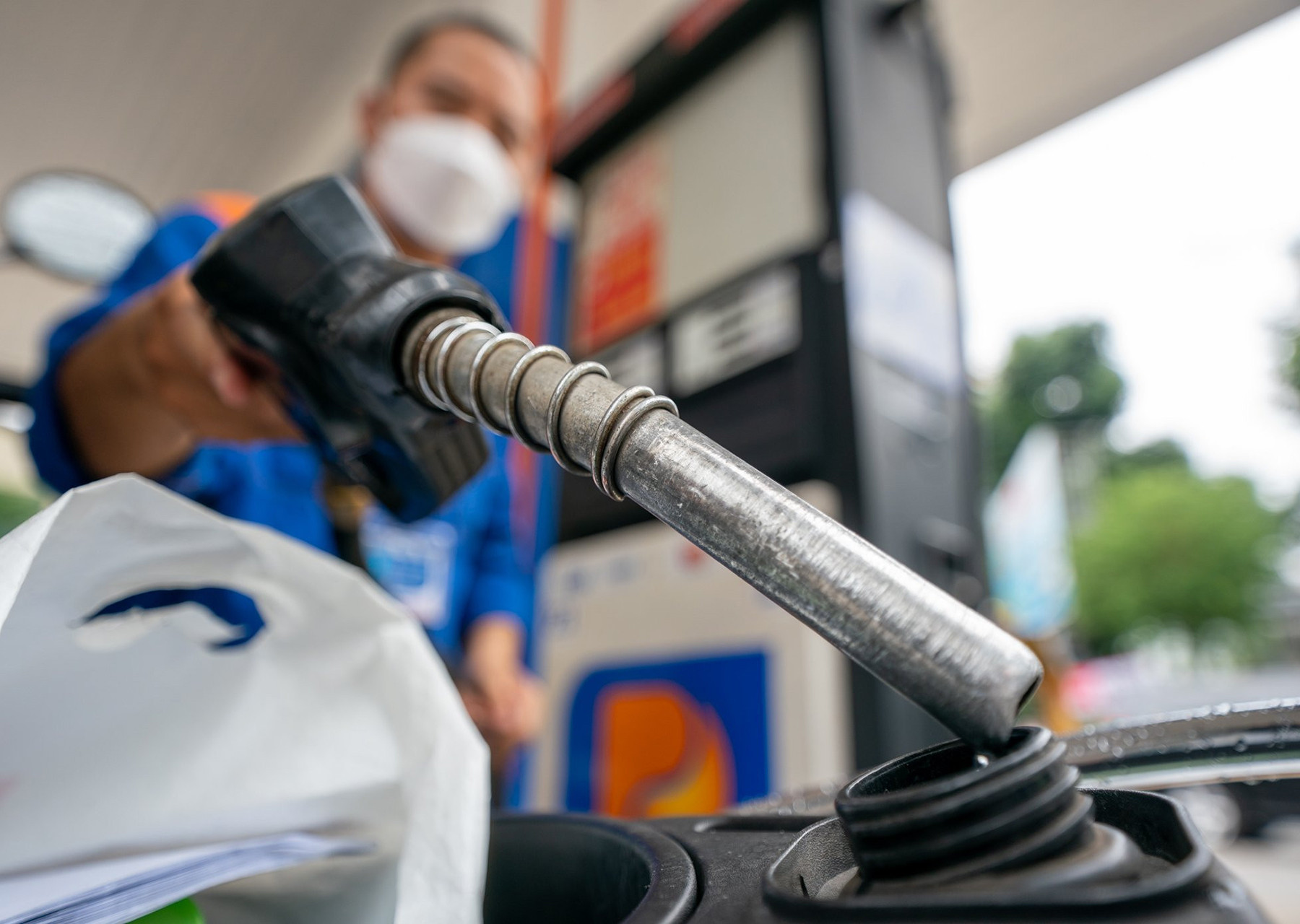
Prime Minister Pham Minh Chinh on March 26 signed a telegram on controlling petroleum product distribution and observing the regulation on using e-invoices in retail petroleum.
Prior to that, the Ministry of Industry and Trade (MOIT) on March 18 sent urgent documents to provincial/municipal authorities, Departments of Industry and Trade, and key petroleum distributors on regulations on using e-invoices, requesting to provide electronic invoice data after each sale.
Commenting about this, a representative of Petrolimex said the distributor has issued e-invoices after each sale for a long time. This has been done at 2,700 filling stations throughout the country, using automation technology, with no interference from workers, thereby ensuring accuracy and transparency.
According to Petrolimex, the distributor issues 1 billion invoices each year. Since July 1, 2023 to now, it has issued over 700 million VAT invoices for each sale under the spirit of government Decree 123.
Since September 1, 2023, to strengthen transparency, Petrolimex has shown car number plates entering Petrolimex’s filling stations.
However, the regulation on e-invoice issuance for each sale is mostly done with large customers, accounting for 4-5 percent. Individual clients do not receive invoices (95-96 percent).
As for large clients such as transport firms, Petrolimex connects with the accountancy system to transmit data about invoices to clients directly, so drivers don’t have to spend time to get each invoice. If customers don’t have demand for invoices, data about the purchases will be transferred directly to taxation agencies.
“When applying the e-invoice, Petrolimex doesn’t face difficulties, because the distributor invested in a software system before it was ready to be deployed,” he said.
However, it can be a problem for other retail points. If retailers choose the same solution as Petrolimex’s (full automation, transparency and direct connection from petrol pump to e-invoice issuance system) they will have to obtain approval from the Ministry of Science and Technology in accordance with the Law on Measurement, which is time-consuming.
The second problem is that the petroleum distribution networks in remote areas are using old pumps, and they will have to spend money on electronic fuel pumps, which cost a lot of money.
Meanwhile, e-invoice software solution providers set different price levels, which would affect enterprises’ costs. It would be better if the state sets maximum/minimum levels to facilitate investment by petroleum distributors.
Some retailers have complained that the regulation on e-invoices will cost them more and that it is difficult to issue real-time invoices with the current regulation.
However, the CTO of a large petroleum company said it is possible to issue e-invoices and apply management to control the volume of petroleum input and output in real time.
He thinks that some petroleum retailers don’t want to use the e-invoice because the required transparency will not allow them to refuse to sell petrol when they want.
It now happens that filling stations close the door and refuse to sell petrol when there is a shortage, ignoring the requests to maintain sale from state management agencies.
A senior executive of a large tech firm said that if MOIT and the General Department of Taxation (GDT) have e-invoices, they will have exact figures about the input of petroleum retailers in real time, which helps better manage and regulate the petroleum market. Petroleum products are a strategic fuel and essential goods not only for consumption but also for production.
According to Le Thanh Bac from FPT IS, there are two options for filling stations.
First, filling stations need control cabinets to collect sale data. The information will be sent to FPT.PetrolInvoice, the e-invoice solution, and the system will create invoices to be sent to a taxation body and buyers.
Second, filling stations need to install smart cameras FPT.PetroInvoice AI, to read and extract data displayed on the screen of electronic fuel pumps and issue invoices in accordance with the taxation body’s regulations.
He said the cost for transition is just VND5 million for every filling station, and it costs VND30 to issue an e-invoice. To date, FPT IS has provided the service to hundreds of filling stations nationwide.
Thai Khang